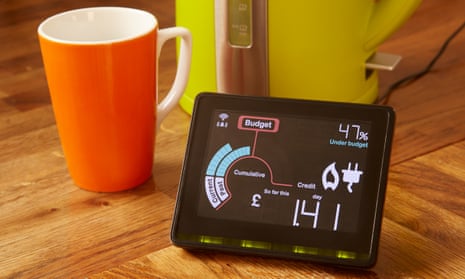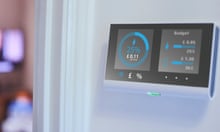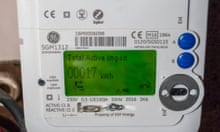They are the mini-computers being installed in 30m UK homes and businesses in an £11bn programme that will allow the energy companies to remotely monitor our gas and electricity usage. But could smart meters also become the new spies in our homes, raising fresh fears about a surveillance society as they track our daily activities?
Campaigners in France, where a similar installation programme is taking place, think so. On holiday in Bordeaux recently I was struck by posters advertising a demo called “Stop Linky”. Linky is the name of French utility giant EDF’s new smart meter, but it has sparked a more vociferous backlash than here. “Dites NON! aux compteurs communicants LINKY,” posters shouted ahead of a demo in mid-June, with others planned around the country.
Lawyers for Stop Linky are preparing a class action against EDF and its subsidiary Enedis, which is implementing the programme. Lawyer Arnaud Durand claims smart meters pose health and privacy issues. He calls them a “Trojan horse’” that could harvest vast amounts of data about our activities. Even rudimentary information has commercial value. “For example, a telemarketing company will know if it’s a good moment to call your house.”
In Britain, privacy campaigners share their fears. Guy Herbert of NO2ID says: “Smart meters are presented as an environmental and power-saving initiative. But it’s a highly surveillant model. It can tell how many showers you have had, when you are cooking, when you are in and out of the home.”

Evidence of the race to monetise the data from smart meters is already emerging. A video on the website of Onzo, a British analytics company, says: “We take energy consumption data from smart meters and sensors. We analyse it and build a highly personalised profile for each and every utility customer.” It will have “the ability to monetise their customer data by providing a direct link to appropriate third party organisations based on the customer’s identified character.” Last year Onzo was at a “consumer goods hackathon” hosted by Procter & Gamble to help sell more detergent, shampoo and toiletries.
But, as Herbert says, this is not just about commercial activities. The Investigatory Powers Act also hands the authorities access to bulk data, including energy data. “A smart meter is also a smart controller,” he warns.
Are these fears overblown? Bernard Lassus is head of Enedis, the company that has already installed 4.7m smart meters in France. Study after study in France, the US and Canada have disproved health fears surrounding the meters, he says. The French meters transmit energy consumption data once a day and contain no more information than a current meter. Data is not individualised and cannot be sold on to third parties without active prior consent by the household.
In Britain, the industry body Smart Energy GB takes a similar line. “Your smart meter stores and transmits simple information on how much energy your home has used. Personal details like your name, address and bank account details are not stored on or transmitted by the meter. Your supplier can’t use any data from your smart meter for sales and marketing purposes unless you give them permission to do so.”
But we all know that once data is out there it is used in ways we didn’t anticipate. A smart meter bill introduced in this week’s Queen’s speech also says there would be new “powers to make changes to smart meter regulations”.
It’s not even clear if smart meters will result in more transparent or cheaper tariffs, with some warning it is turning into an £11bn white elephant. And can someone tell me why our programme, near identical in size to that in France, is somehow costing us more than twice the €5bn it is costing them?










